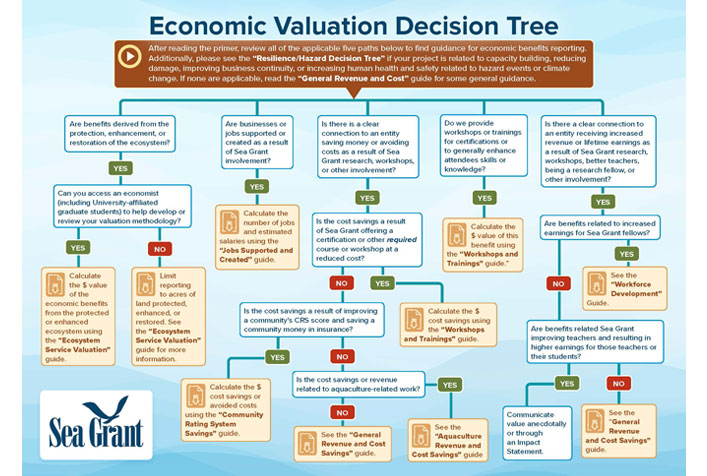Assessing the Value and Economic Impacts of Coastal Engagement and Resilience Projects

Project Brief
The Challenge
Sea Grant is a federal/university partnership between the National Oceanic and Atmospheric Administration and 34 university-based programs in every coastal and Great Lakes state, Puerto Rico, and Guam. Collectively, these programs perform hundreds of coastal engagement and resilience projects each year. Sea Grant turned to ERG to help their programs assess and communicate the economic value of these projects.
ERG's Solution
Under contract to Sea Grant, ERG developed a suite of economic valuation methodology guides and supporting tools designed to help Sea Grant members more accurately and defensibly estimate the economic value of their programs and better communicate their economic impacts and benefits. These valuation resources covered the four focus areas important to Sea Grant programs: sustainable fisheries and aquaculture, healthy coastal ecosystems, environmental literacy and workforce development, and resilient communities and economies.
To fully understand the needs, priorities, limitations, and capabilities of the Sea Grant programs, ERG began the project by conducting more than 20 in-person and virtual listening sessions with over 100 attendees from across the 34 programs. Following these sessions, ERG convened a panel of expert economists to discuss various valuation approaches for each program activity identified (e.g., implementation of a resilience project, development of informational website, creation of decision support tool, funding for a fellowship). ERG also conducted a detailed literature review to ground the methodology guides in defensible economic literature and then developed a suite of valuation resources that could be implemented by non-economists and yield defensible results. ERG rolled out this suite of methodology guides and training materials with a series of training webinars.
Client
National Oceanic and Atmospheric Administration, Sea Grant